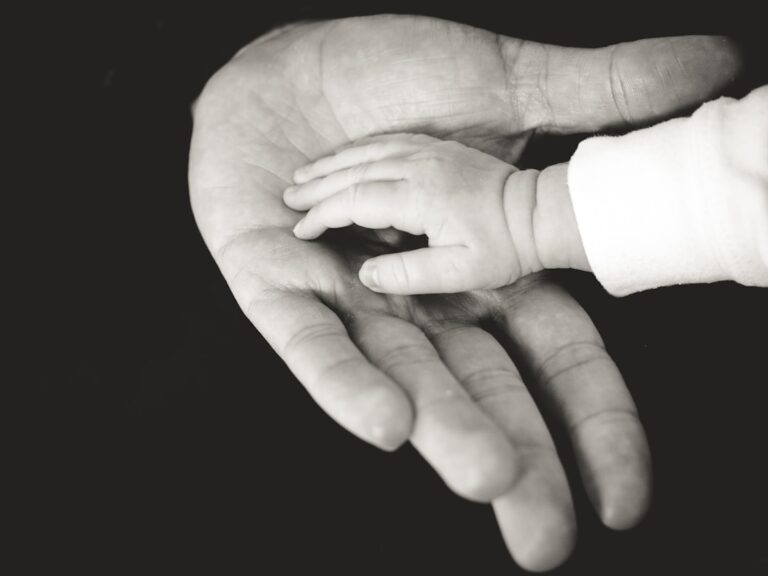Building Stronger Bonds: Nurturing Relationships for Lasting Happiness
Nurturing relationships are essential for our overall well-being and happiness. Whether it’s with family, friends, or romantic partners, these connections play a crucial role in our lives. When we invest time and effort into nurturing our relationships, we create a support system that can help us navigate life’s challenges and celebrate its joys. Strong relationships provide a sense of belonging, security, and fulfillment, which can have a positive impact on our mental and emotional health. Research has shown that people with strong social connections are happier, healthier, and even live longer than those who are more isolated.
Furthermore, nurturing relationships can also have a positive impact on our physical health. Studies have found that people with strong social support have a lower risk of developing certain health conditions, such as heart disease, high blood pressure, and depression. Additionally, having a network of supportive relationships can help us cope with stress more effectively, leading to better overall resilience. In essence, nurturing relationships is not just a nice thing to have; it’s a fundamental aspect of leading a fulfilling and healthy life.
Key Takeaways
- Nurturing relationships is important for emotional well-being and overall happiness
- Effective communication and empathy are essential for building strong bonds
- Spending quality time together strengthens the connection between individuals
- Trust and support are crucial for maintaining healthy and lasting relationships
- Resolving conflicts and building resilience are key for overcoming challenges in relationships
- Cultivating gratitude and appreciation fosters a positive and fulfilling relationship dynamic
- Self-care plays a vital role in nurturing relationships and maintaining personal well-being
Communication and Empathy in Building Strong Bonds
Effective communication and empathy are the cornerstones of building strong bonds in any relationship. When we communicate openly and honestly with our loved ones, we create an environment of trust and understanding. This allows us to express our thoughts and feelings, as well as listen to the perspectives of others. Empathy is also crucial in building strong bonds, as it enables us to understand and validate the emotions of our loved ones. By showing empathy, we demonstrate that we care about the well-being of the other person and are willing to support them through their experiences.
Furthermore, communication and empathy help us navigate conflicts and misunderstandings in a constructive manner. When we are able to express ourselves clearly and listen with empathy, we can resolve conflicts more effectively and strengthen our relationships in the process. Additionally, effective communication and empathy foster a sense of connection and intimacy, which is essential for building strong bonds with our loved ones. Ultimately, these skills are vital for creating healthy and fulfilling relationships that can withstand the test of time.
Spending Quality Time Together
Spending quality time together is an important aspect of nurturing relationships. Whether it’s sharing a meal, engaging in a hobby, or simply having a meaningful conversation, quality time allows us to connect with our loved ones on a deeper level. It provides an opportunity to create lasting memories, strengthen bonds, and show appreciation for one another. Quality time also fosters a sense of intimacy and closeness, which is essential for building strong relationships.
Moreover, spending quality time together helps us understand the interests, values, and needs of our loved ones. This understanding can lead to greater empathy and communication within the relationship. Additionally, quality time allows us to support each other through life’s ups and downs, creating a sense of security and trust within the relationship. Ultimately, making time for meaningful interactions with our loved ones is crucial for nurturing strong and fulfilling relationships.
Trust and Support in Relationships
| Metrics | Trust and Support in Relationships |
|---|---|
| Communication | Open and honest communication builds trust and support in relationships. |
| Empathy | Showing empathy towards your partner fosters a supportive and trusting environment. |
| Reliability | Being reliable and consistent in your actions helps to build trust in relationships. |
| Respect | Mutual respect is essential for creating a supportive and trusting relationship. |
Trust and support are foundational elements of nurturing relationships. Trust forms the basis of any healthy relationship, as it allows us to feel secure and safe with our loved ones. When we trust someone, we believe in their reliability, integrity, and commitment to the relationship. This creates a sense of stability and security that is essential for building strong bonds. Support is also crucial in nurturing relationships, as it allows us to show up for our loved ones during challenging times and celebrate their successes.
Furthermore, trust and support create an environment where individuals feel valued, understood, and accepted for who they are. This fosters a sense of belonging and connection within the relationship. Additionally, when we feel supported by our loved ones, we are more likely to take risks, pursue our goals, and overcome obstacles with confidence. Ultimately, trust and support are essential for creating a nurturing and resilient foundation within our relationships.
Resolving Conflict and Building Resilience
Conflict is a natural part of any relationship, but how we navigate it can have a significant impact on the strength of our bonds. Resolving conflict in a healthy and constructive manner is essential for nurturing relationships. When we approach conflict with empathy, open communication, and a willingness to understand each other’s perspectives, we can find solutions that strengthen our connections rather than drive us apart. Resolving conflict effectively also builds resilience within the relationship, as it allows us to overcome challenges together.
Moreover, navigating conflict can lead to greater understanding and empathy within the relationship. When we work through disagreements with respect and understanding, we deepen our connection with our loved ones. Additionally, learning to navigate conflict in a healthy way can lead to personal growth and a stronger sense of trust within the relationship. Ultimately, resolving conflict in a constructive manner is essential for building resilience and nurturing strong bonds with our loved ones.
Cultivating Gratitude and Appreciation in Relationships

Cultivating gratitude and appreciation within our relationships is essential for nurturing strong bonds. When we express gratitude for the presence of our loved ones in our lives, we acknowledge their value and contribution to our well-being. This fosters a sense of connection and warmth within the relationship. Additionally, expressing appreciation for our loved ones’ qualities, actions, and support can strengthen our bonds and create a positive atmosphere within the relationship.
Furthermore, cultivating gratitude and appreciation can lead to greater happiness and satisfaction within the relationship. When we focus on the positive aspects of our loved ones and express gratitude for their presence in our lives, we create an environment of love and positivity. This can lead to greater resilience within the relationship and a deeper sense of connection with our loved ones. Ultimately, cultivating gratitude and appreciation is essential for nurturing strong bonds that withstand the test of time.
The Role of Self-Care in Nurturing Relationships
Self-care plays a crucial role in nurturing relationships. When we take care of our physical, emotional, and mental well-being, we are better able to show up for our loved ones in a meaningful way. Self-care allows us to manage stress effectively, maintain a positive outlook on life, and cultivate a sense of balance within ourselves. This enables us to be more present and supportive within our relationships.
Moreover, practicing self-care can lead to greater empathy and understanding within the relationship. When we prioritize our well-being, we are better able to understand and validate the experiences of our loved ones. This fosters a deeper sense of connection and intimacy within the relationship. Additionally, practicing self-care sets an example for our loved ones to prioritize their own well-being, creating a positive cycle of support within the relationship. Ultimately, self-care is essential for nurturing strong bonds with our loved ones and creating a supportive and fulfilling environment within our relationships.
Looking for ways to improve your relationship? Check out this insightful article on lifehacksfor.com that offers valuable tips and advice for building a strong and healthy relationship. Whether you’re looking to enhance communication, strengthen trust, or navigate challenges, this article provides practical strategies to help you and your partner thrive. Don’t miss out on the opportunity to cultivate a fulfilling and lasting connection with your loved one.
FAQs
What is a relationship?
A relationship is a connection or association between two or more people, based on mutual understanding, trust, and emotional or physical intimacy.
What are the different types of relationships?
There are various types of relationships, including romantic relationships, friendships, family relationships, professional relationships, and casual relationships.
What are the key components of a healthy relationship?
Key components of a healthy relationship include communication, trust, respect, empathy, support, and mutual understanding.
What are some common challenges in relationships?
Common challenges in relationships include communication issues, trust issues, conflicts, differences in values or goals, and external stressors such as financial problems or work-related stress.
How can individuals improve their relationships?
Individuals can improve their relationships by practicing effective communication, actively listening to their partner, showing empathy and understanding, being honest and transparent, and working together to address challenges.
What are some signs of an unhealthy relationship?
Signs of an unhealthy relationship may include lack of communication, disrespect, manipulation, control, abuse (physical, emotional, or verbal), and feeling constantly unhappy or unfulfilled.
When should someone seek professional help for their relationship?
It is advisable to seek professional help for a relationship when communication breakdowns, conflicts, or other issues persist despite efforts to resolve them, or when there are signs of abuse or serious emotional distress.






